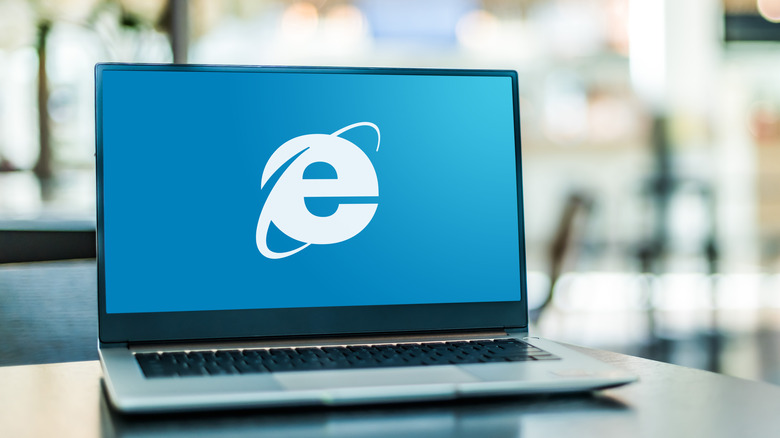Here's Why You Need To Stop Using Internet Explorer Immediately
As of June 15, 2022, Microsoft's Internet Explorer 11 is being retired. Microsoft has been spreading the news for some time, urging anyone who might be thinking of waiting to change web browsers until the last minute (or holding off entirely) to, well, not do that. Naturally, it's pushing its newer Edge browser, but the most important takeaway is that a change needs to happen one way or another.
And hey, switching web browsers is a pain for sure. All those bookmarks and all that saved login info, taking the time to download and install a new browser, then slowly changing everything over from the old one, and so forth — it's all a pain. Though Microsoft has made it easy to import your details from IE to Edge, suggesting that you copy and paste "edge://settings/importData" into the Edge address bar, then go to "Import From" and select "Internet Explorer."
Regardless of how easy the process of changing web browsers may be, it's an important one. Especially if your current browser is being retired.
The risk of not changing
Why should you change web browsers now that Internet Explorer is at its final end? It all comes down to security. Internet Explorer is about to become inarguably insecure software, with a security level that grows ever weaker from this point forward.
Web browsers are regularly updated with new security measures and fixes to potential exploits that could allow an outside party to do all sorts of unpleasant things to your system. Stealing personal information, acquiring credit card or bank account numbers, learning passwords to one or more of your various online services, that kind of thing. Keeping your browser up-to-date reduces the risk of being compromised, and can often remove weaknesses you may not have even known were there.
By continuing to use a web browser after support has been halted, you're leaving yourself vulnerable to attacks from cagey web links, spam emails, and so on. With no more updates on the horizon, any exploits found from here on out will never be patched up — and you probably won't even be made aware of them since nobody is maintaining the software anymore. The longer you wait to switch to a new browser, the greater the risk.
Dropped web browser support also means non-security updates are also off the table. No more new features, no eventual improvements to clunky design, and perhaps most importantly: no compatibility updates. At some point, certain basic features just won't work with an outdated browser anymore. Like it or not, Internet Explorer's time is up — for real, this time.

